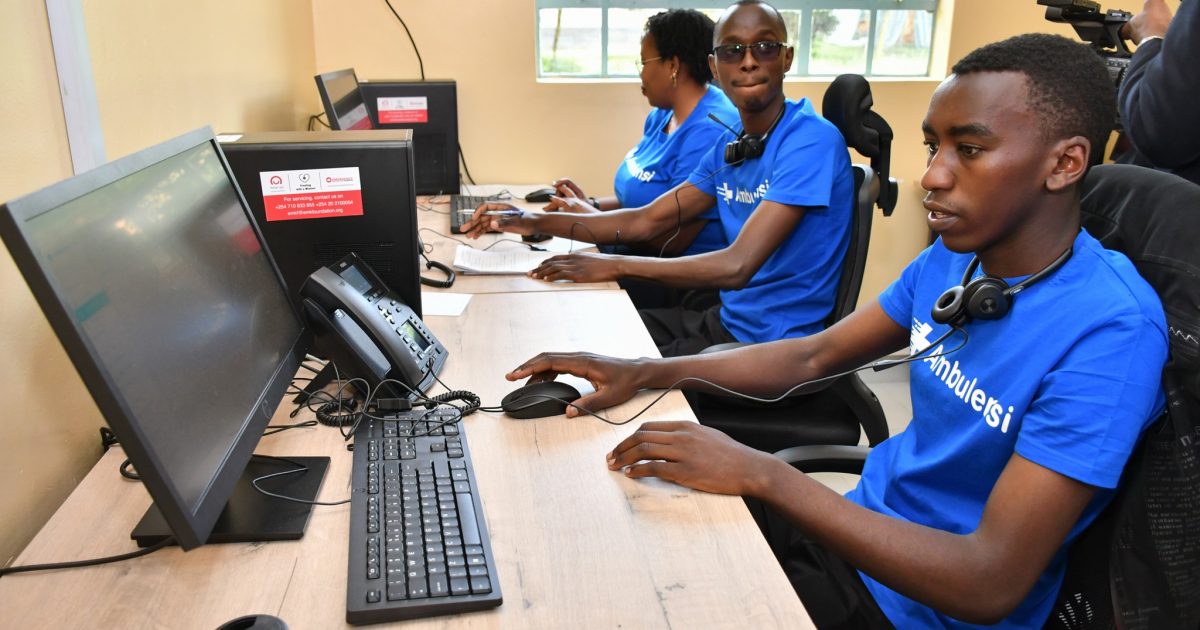A few decades ago, only humans could play chess or read written texts, today these tasks can comfortably be performed by Artificial Intelligence (AI).
Today, researchers and learners are working on ambitious applications which will continue to revolutionise how people work, communicate, study and even spend their leisure time.
With the rapid developments in the field of AI, discussions about the high-end tech’s potential and its impacts on our daily lives has permeated local cybers, colleges, schools and even those living in rural towns like Nyeri.
Harriet Wambui, a local tech expert and cyber operator says AI is a necessary evil whose time has finally come.
She urges its opponents to accept it and get the best out of it rather than dismiss it.
“Artificial Intelligence is not just a buzzword; it’s a tool that can enhance our lives and make our day to day work easier if used responsibly,” Wambui said.
“Its applications can be applied by a farmer in Nyeri where machine learning algorithms can help farmers predict weather patterns and optimise crop yields.” She opines.
Recent rapid growth in computing power and communication technologies has enabled the compilation and sharing of large volumes of data, opening up many new areas of AI technological development.
Some of the best features include Machine Learning (ML), Natural Language Processing (NLP), Computer Vision, Predictive Analytics and Generative AI.
Samuel Maina, an IT expert working in Nyeri town, reiterates that AI is a generational shift likely to shape the lives of many individuals and aid in solving a host of daily tasks.
He says that humanity has evolved rapidly in terms of technology as a panacea to addressing modern day challenges.
Maina cites the case of lawyers who are often time bound due to their strict schedules but who can easily retrieve an affidavit in a span of seconds by aid of AI and attend to their client without sitting down for hours with a pen and a book.
Be it as it may, privacy concerns while using AI remain the elephant in the room with many people reluctant to embrace this cutting-edge technology.
In Kenya, however, this right is privacy is clearly protected under Article 31 of our Constitution.
“No one shall be subjected to arbitrary interference with his privacy, family, home or correspondence. Many residents are apprehensive about the data collection practices associated with AI technologies.” States Jeff Kiragu, another ITexpert.
“It is always important for people to know how their information and data is being used.” Kiragu notes.
The fact that AI devices are fast and can multi-task to generate desired results makes people feel that the likelihood of becoming redundant is quite real.
“What if AI takes over jobs that ordinary folks rely on?” poses Peter Mwangi, a thirty-five -old businessman in Nyeri town.
“I fear that machines will replace the hard work of many people in our community,” he cautions.
This sentiment resonates with most of the residents who share similar fears about the automation of traditional jobs particularly in the agricultural, education and retail sector.
AI functions on activation whereby a person prompts in order to get information, for instance, students nowadays use ChatGPT, an AI model that generates human-like texts based on prompts from a user.
The ChatGPT gives answers to questions a user asks and comes in handy with writing, learning and research, all depending on users’ preference.
AI is redefining the education sector as students have quick access to information that helps in assignments without the need of a parent or library.
But AnthonyMaina, a software engineer working for a fintech company in Nairobi warns that while AI is resourceful as a high-end tech tool, its use should be moderate to avoid overdependence.
He cites the case of students using the technology to write their academic papers as a case in point and says this could kill creativity among learners and lead to half-baked graduates flooding the job market.
“Today if you gave a student an assignment to write an article of 3,000 words, they will just use ChatGPT to write the article. Before the AI developments arrived on the scene, we had to think on our own and do hand written articles. However today, the education sector is definitely being redefined through this system. “Says Maina.
Currently that is a challenge because with the developments of AI students can leverage on AI to do for them assignments, instead of sitting down to do the work, which they find tiresome.
Engineer Maina recommends that AI developers should change their approach by looking for ways in which AI can instead enhance and complement students’ productivity.
This way, Maina believes AI can be handful in attaining efficiency and productivity in areas like data analysis.
“Initially the mentality about AI was that it is coming for their jobs and people were worried. It is true that it is coming for our jobs, but we can use its advancement for creating opportunities for ourselves. We can use it to help solve some of the problems in society, people can come up with software, apps through technological advancements,” adds Maina.
But just like any other invention, AI prone to abuse especially when used to generate images and videos of people with the motive of tarnishing their reputation.
Such images and videos can build or bring down the reputation of a person, leading to concerns on the ethical use of the technology.
Maina says there is a need to protect the public from consuming stereotypes that come from the internet through public awareness campaigns in regard to dos and don’ts.
There have also been concerns on the issue of AI regulation on areas of data privacy and protection.
“Governance and ethics have to go hand in hand to ensure the safety of people’s private information and also security of classified information. The European Union tries to safeguard its people in the use of AI. Unfortunately, in Africa we are just consumers while the developed nations are the developers. All governments will have to play a big role in the regulation of AI, especially in the training of the models. There is a need for governance but it mostly depends on the ethics of the users,” he points out.
There are also concerns on the technical expertise and prowess of the use of AI and whether there is inclusivity and diversity across all age groups.
Be it as it may, AI promises advances in personalised medicines, smart cities and much more.
In the coming years experts believe this technology will most certainly integrate into our everyday life and could someday aid in solving complex challenges that have dogged humanity for eons.
But going forward, any progress must be balanced with ethical considerations and personal responsibility to ensure AI is a boon to all.
By Samuel Maina and Mumbi Kinaro





